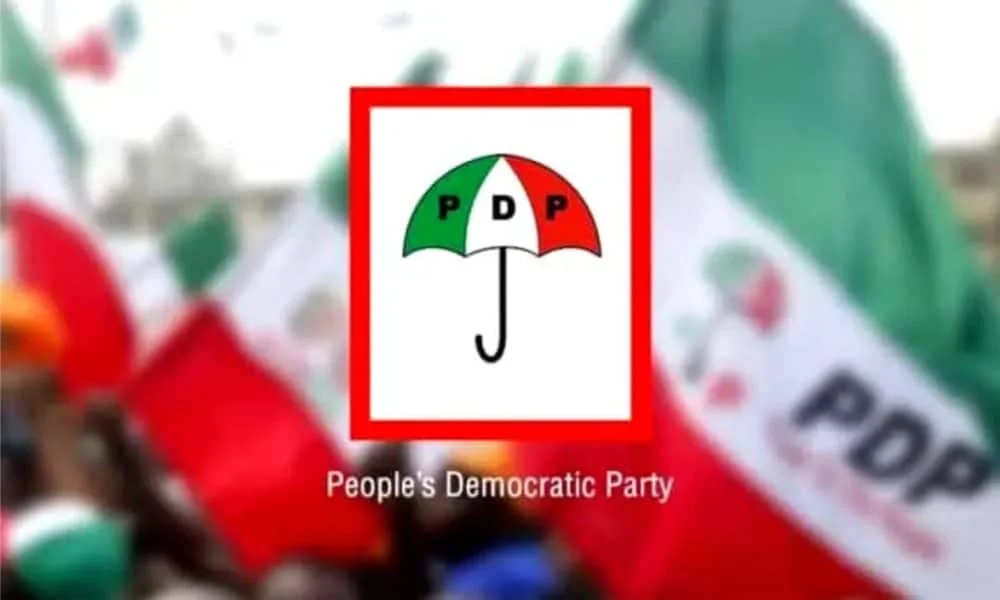One question that the study tried to answer is whether past reforms succeeded in rationalising government functions, reducing governance costs, bringing the benefits of organised government to the people of Nigeria, and, above all, restoring citizen faith in public officials. Equally pertinent is the question why, despite the various “rationalisation” measures undertaken on the recommendation of reform (or restructuring) panels and committees, the cost of governance keeps rising and public service performance standards continue to fall?
There was a time when the public service of Nigeria epitomised the best ideals of modern administration. Besides advising the government of the day on the formulation of policy, it displayed a high level of professionalism in designing and executing major development programmes. The golden era was, however, short-lived. Today, the once energetic institution is a shadow of its former self. As a creature that straddles two (i.e., the modern and the traditional) worlds, the public service gradually fell victim to performance disablers such as natural and contrived diversity, political interference, patronage and cronyism, capacity deficits, plain ineptitude, institution decay, sundry moral hazards and ethical violations, as well as information storage and retrieval slip-ups.
It is indeed a comedown for a public service that had midwifed the merger of the colonial era’s autonomous departments into multi-purpose Ministries; the “Nigerianisation” of the top cadres of the service; the compilation of civil service rules and codes of conduct; steady enforcement of service discipline; the maintenance of the apparatus of government during the era of military rule; the provision of management and logistics backup services in aid of the war effort between 1967 and 1970; the rendition of advice that proved invaluable to the survival of Nigeria at a time when the country’s existence country was threatened; and the implementation of an ambitious programme of post-war reconstruction, resettlement, and development up to the mid-1970s. The public service that wrestled with fuel shortage, currency redesign, and poverty alleviation challenges in the 2020s is the same one that had successfully handled the logistics challenges posed by the rerouting of vehicular traffic during the changeover from left to right hand drive in 1972, and by the replacement of the British pound sterling with decimal currency the following year, 1973.
The public service’s descent from grace became noticeable in the late 1970s, when a combination of demographic, fiscal and macro-economic changes tested its capacity for foresight and prevision and revealed its policy analytic and problem-solving inadequacies. The Cement Armada of 1974 provides a case study in the humbling of a once energetic public service. The service’s image declined as it battled unsuccessfully with the hoarding, profiteering and acute shortage of essential commodities. The public service could not even ensure the orderly flow of traffic in urban areas like the Lagos metropolis — notwithstanding the desperate recourse to the restriction of each vehicle’s movement to alternate (odd or even) days of the week. The public service could also not rise up to the myriad challenges facing rural communities. Securing life and property was getting increasingly difficult. Access to expeditious and fair dispensation of justice was a dream yet to be fulfilled.
Starting from the 1970s, efforts have been made to reform the public service. However, the reform measures have so far yielded little results. The Udoji Commission’s comprehensive review of the public service represented the most ambitious of the reform efforts. Yet, the radical, “New Style, results-oriented” changes proposed by the Commission brought no significant improvement in performance. Career officials gladly accepted the massive pay increases awarded by the Commission, but failed to re-engineer the internal processes for improved service delivery.
The woes befalling the Nigerian public service have been compounded by the rapid decay of values, and, particularly, by rampant corruption. As noted by the National Strategy for Public Service Reform, the Nigerian public service, as of May 1999, was “weak, politicized, corrupt, demoralized and inefficient.” It was an “over-bloated, lop-sided, ill-equipped, poorly paid, (and) rudderless institution.”
It took the 1975 Purge to shake the public service to its foundation. That perhaps is all the Purge achieved. It unsettled the public service, but it neither shook off the lethargy that had impeded the proper conduct of government business, nor did it reposition the public service for the attainment of the crucial performance improvement and quality service objectives. If anything, by striking at the heart of job security, the Purge served as a major disincentive to innovativeness and risk-taking at the middle and senior management levels.
By the 1990s, the cumulative effect of mismanagement and corruption had started to manifest. The state enterprises that were shuttered during the period of institution decay, include the National Shipping Lines, which was established in 1959 and liquidated in 1995; the successor National Unity Line/NUL established in 1996 and shut down in 2005; the Nigerian Airways that came into being in 1958 but, after piling up massive debt, ceased to exist in 2003; and NITEL, which was created in 1985 when the telecoms arm of the Posts and Telegraph/P&T Department was merged with the Nigerian External Telecommunications, but which could not withstand competition from private service providers when the telecommunications sector was liberalised in 1992. The Osogbo, Katsina, and other rolling mills, which were to power Nigeria’s takeoff to industrial growth, suffered more or less the same pathetic fate.
Nigerians need credible journalism. Help us report it.
PREMIUM TIMES delivers fact-based journalism for Nigerians, by Nigerians — and our community of supporters, the readers who donate, make our work possible. Help us bring you and millions of others in-depth, meticulously researched news and information.
It’s essential to acknowledge that news production incurs expenses, and we take pride in never placing our stories behind a prohibitive paywall.
Will you support our newsroom with a modest donation to help maintain our commitment to free, accessible news?
The woes befalling the Nigerian public service have been compounded by the rapid decay of values, and, particularly, by rampant corruption. As noted by the National Strategy for Public Service Reform, the Nigerian public service, as of May 1999, was “weak, politicized, corrupt, demoralized and inefficient.” It was an “over-bloated, lop-sided, ill-equipped, poorly paid, (and) rudderless institution.” On top of it all, it was lacking in initiative apart from being persistently set back by “loss of morale, arbitrariness, and corruption” (NSPSR, 2015:6).
The study began in February 2023 with literature review, followed, in May 2023, by the pilot testing of two questionnaires. The first questionnaire was administered on political officeholders and career officials in selected MDAs. The second was targeted at non-state actors in all the six geopolitical zones of the federation. The substantive survey commenced in June and ended in September 2023.
It is against this backdrop that the Aig-Imokhuede Foundation commissioned a number of scholars to carry out a study into the enablers and disablers of public administration reform in Nigeria. Led by Professor MJ Balogun (Project Director and Lead Author), the research team comprises Professor Isaac N Obasi, University of Abuja (Coordinator, North-Central Zone); Professor Mahmud Umar, Gombe State University (North-Eastern Zone Coordinator); Professor Adam Anyebe, Ahmadu Bello University (North-Western Zone Coordinator); Professor Okey Ikeanyibe, University of Nigeria (South-East Zone Coordinator); Professor Ekhosuehi Oghator, University of Benin (South-South Coordinator); and Professor Anthony Oladoyin, Obafemi Awolowo University (South-West Zone Coordinator). Ms Winnifred Ukegbu provided the necessary technical backup for the conduct of the field survey.
The study began in February 2023 with literature review, followed, in May 2023, by the pilot testing of two questionnaires. The first questionnaire was administered on political officeholders and career officials in selected MDAs. The second was targeted at non-state actors in all the six geopolitical zones of the federation. The substantive survey commenced in June and ended in September 2023. The study’s findings and recommendations were incorporated in a report which was submitted to the Aig-Imokhuede Foundation in December 2023. The findings were presented at a national workshop held in Yar’Adua Centre, Abuja, on 30 July.
One question that the study tried to answer is whether past reforms succeeded in rationalising government functions, reducing governance costs, bringing the benefits of organised government to the people of Nigeria, and, above all, restoring citizen faith in public officials. Equally pertinent is the question why, despite the various “rationalisation” measures undertaken on the recommendation of reform (or restructuring) panels and committees, the cost of governance keeps rising and public service performance standards continue to fall? The mother of all questions of course is whether past reforms boldly confronted or tactfully side-stepped a major impediment to change — i.e., Nigeria’s ‘hard’ environment – one that is characterised by heterogeneity, and the tendency to manipulate the main fault lines to evade responsibility for personal choices. It is, in short, an environment that excuses bad behaviour, legitimises the exercise of power without the obligatory control, and practically holds civilisation hostage. How reform gains can be accumulated and sustained in such an environment is the main focus of the public service reform study, and of follow-up articles.
M.J. Balogun was Special Adviser to the President of the 74th Session of the United Nations General Assembly.
Support PREMIUM TIMES' journalism of integrity and credibility
At Premium Times, we firmly believe in the importance of high-quality journalism. Recognizing that not everyone can afford costly news subscriptions, we are dedicated to delivering meticulously researched, fact-checked news that remains freely accessible to all.
Whether you turn to Premium Times for daily updates, in-depth investigations into pressing national issues, or entertaining trending stories, we value your readership.
It’s essential to acknowledge that news production incurs expenses, and we take pride in never placing our stories behind a prohibitive paywall.
Would you consider supporting us with a modest contribution on a monthly basis to help maintain our commitment to free, accessible news?
TEXT AD: Call Willie - +2348098788999




















 English (US) ·
English (US) ·